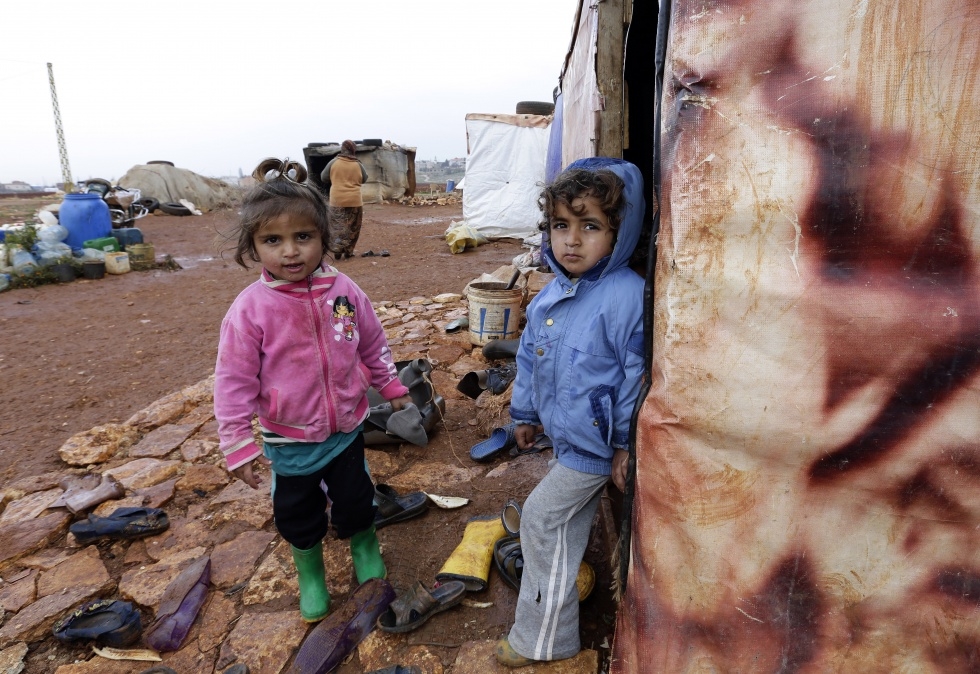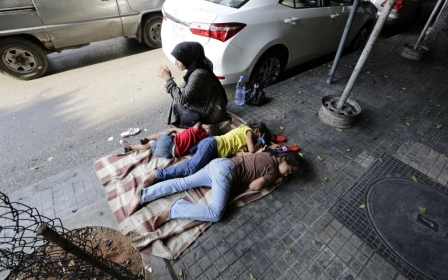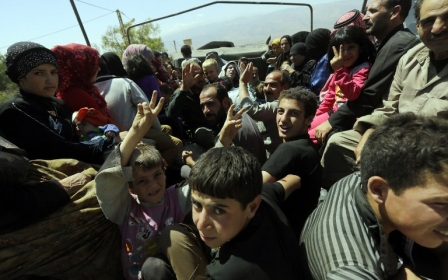Lebanon imposes visas on war-fleeing Syrians

Lebanon is to impose visa restrictions on Syrians for the first time, according to documents published online.
The new regulations, posted on the website of the General Security agency, come into effect on January 5 and lay out eight new visa categories, including for tourism and medical treatment.
The requirement appeared to be the first time Lebanon has demanded that Syrians apply for visas.
Citizens of both countries have for decades been able to travel freely across their shared border.
The new rule is the latest in a series of measures taken by Lebanon to stem the influx of Syrians fleeing their country's brutal civil war.
There are more than 1.1 million Syrian refugees in Lebanon.
In October, Social Affairs Minister Rashid Derbas said Lebanon was effectively no longer receiving Syrian refugees, with limited exceptions for "humanitarian reasons".
A security source, speaking to AFP on condition of anonymity, declined to describe the new requirements as visas, but acknowledged they were unprecedented.
"This is the first time these kinds of instructions have been given," he said.
"The goal is to bring the security and economic situation under control and to monitor the presence of Syrians on Lebanese soil."
A spokesman for the United Nations refugee agency UNHCR said they were still studying the new rules and had no immediate comment.
The document published online lists eight categories, including tourist visas, which require applicants to provide evidence of a hotel reservation and $1,000, as well as a valid passport or ID card.
Other visas are available for business visits, medical treatment and schooling, as well as transit visas for onward travel.
Visas are also available for those who own property in Lebanon or are seeking to enter to apply for visas at foreign embassies in Beirut.
Syria's civil war began in March 2011 as a peaceful protest movement inspired by the pro-democracy Arab Spring and demanding the ouster of President Bashar al-Assad, but morphed into a brutal war after pro-Assad forces unleashed a massive crackdown against dissent.
The war has resulted in the deaths of an estimated 200,000 people, and displaced roughly half of the country's population, according to the UN.
The majority of fatalities are reportedly of civilians, primarily killed by pro-Assad forces, although other groups are also implicated.
New MEE newsletter: Jerusalem Dispatch
Sign up to get the latest insights and analysis on Israel-Palestine, alongside Turkey Unpacked and other MEE newsletters
Middle East Eye delivers independent and unrivalled coverage and analysis of the Middle East, North Africa and beyond. To learn more about republishing this content and the associated fees, please fill out this form. More about MEE can be found here.




